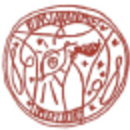Introduction
Kunstakademie Düsseldorf (Düsseldorf Academy of Art) is a famous public art academy located in Düsseldorf, the capital of North Rhine-Westphalia, Germany. It is one of the oldest art academies in Germany. It plays an important role in the field of art education and has trained many well-known artists.
Overview
Student size: The academy is moderate in size and the number of students is not very large, but due to its high-quality teaching and reputation in the art world, it has attracted outstanding students from all over the world to study here, and has provided a large number of professional talents for the art field.
Faculty: It has a faculty composed of internationally renowned artists and scholars. They not only have outstanding achievements in artistic creation, but also have rich teaching experience and can provide professional guidance and inspiration to students.
History and establishment time
The academy was founded in 1762 by Lambert Kach and was originally a painting school. In 1773, the school became the "Electoral Palatinate Academy of Painters, Sculptors and Architects", and in 1819 it was transformed into the Prussian Royal Academy of Arts in the Rhine.
School Strength
Course Setting: There are liberal arts, painting, sculpture, comprehensive plastic arts, architecture, stage design and photography, art history, education, philosophy, educational theory of plastic arts, art aesthetics and other majors. The courses are rich and diverse, covering many aspects of the art field, providing students with a wide range of learning options.
Teaching Achievements: Some works of professors and graduates of the academy have repeatedly set the highest price record in the art market. For example, the world's highest-priced single work by a living artist auctioned in 2010 was the abstract painting "809-4" created by Gerhard Richter in 1994. In addition, many graduates of the college also have an important influence on the international art stage, which fully demonstrates the college's teaching strength.
Nature of the institution
Public art college.
Educational philosophy
Committed to providing students with high-quality art education, focusing on cultivating students' creativity and personality, encouraging students to boldly explore and innovate in the field of art, emphasizing the close connection between art and society and culture, cultivating students' deep understanding of art and social responsibility, so that students can become artists with international vision and influence.
Key laboratories and disciplines
Key disciplines: Painting, sculpture, photography, liberal arts, architectural art and other disciplines are the key development areas of the college. These disciplines have achieved remarkable results in teaching and research, with high academic level and artistic influence. For example, the Düsseldorf Painting School has become an internationally renowned art academy in the 19th century, and its painting major has trained many outstanding painters.
Key laboratories or studios: The college has various art studios and laboratories with complete equipment and advanced functions, providing students with a good practical creation environment. Such as the darkroom and digital image processing laboratory for photography, the large studio for painting, and the material processing workshop for sculpture, which meet the practical needs of students of different majors and help students combine theoretical knowledge with practical skills to improve their artistic creation level.
Department
The college has an art department and an art-related science department, covering multiple art professional fields, which together constitute a complete subject system of the college and provide students with systematic art education and professional training.
Ranking
It has a high reputation and ranking among art colleges in Germany and even internationally. The specific ranking varies depending on different ranking agencies and evaluation standards, but it has long been recognized as one of the world's top art colleges, especially in professional fields such as painting, sculpture, and photography. The recognition of its graduates in the art market and art world also fully proves the college's teaching quality and academic status.
Fees
Tuition: As a public art college, it usually does not charge tuition for domestic students and international students who meet certain conditions, but may need to pay a small amount of semester miscellaneous fees for school management and facility maintenance, etc., and the miscellaneous fees per semester are generally around a few hundred euros.
Living expenses: In Düsseldorf, students' monthly living expenses are about 800-1000 euros, including accommodation, food, transportation, purchase of materials and tools, etc., but the specific expenses will vary depending on personal lifestyles and consumption habits.
Campus
Campus location: Located in the center of Düsseldorf, the surrounding cultural and artistic atmosphere is strong, with many museums, galleries, art studios, etc., providing students with rich art resources and practical opportunities, facilitating students to communicate and cooperate with the local art community and broaden their artistic horizons.
Teaching facilities: The campus has many historic and unique architectural teaching buildings and studios. The steps at the entrance of the main building are engraved with the theme of the college: "Give our students only the best". In addition, the college is also equipped with modern teaching facilities, such as professional classrooms, multimedia laboratories, libraries, etc., which provide good conditions for teaching and learning.
Living facilities: The school is surrounded by complete living facilities, including student dormitories, restaurants, supermarkets, cafes, etc., providing students with convenient living conditions and meeting their daily needs.
-

Heidelberg University
-

University of Freiburg
-

University of Jena
-

University of Marburg
-

University of Rostock
-

University of Halle-Wittenberg
-

University of Bayreuth
-

Leipzig University
-

University of Tübingen
-

Humboldt University of Berlin
-

Mesoamerican University
-

Istmo University
-

Mariano Galvez University of Guatemala
-

Regional University of Guatemala
-

Galileo University
-

Francisco Marroquín University
-

Rafael Landívar University
-

University of the Valley of Guatemala
-

University of San Carlos of Guatemala
-

Technological Institute of Tlaxcala Plateau
-

Golfo University
-

Technological University of South Sonora
-

Technological University of Huejotzingo
-

Tizimín Institute of Technology
-

Chilpancingo Institute of Technology

